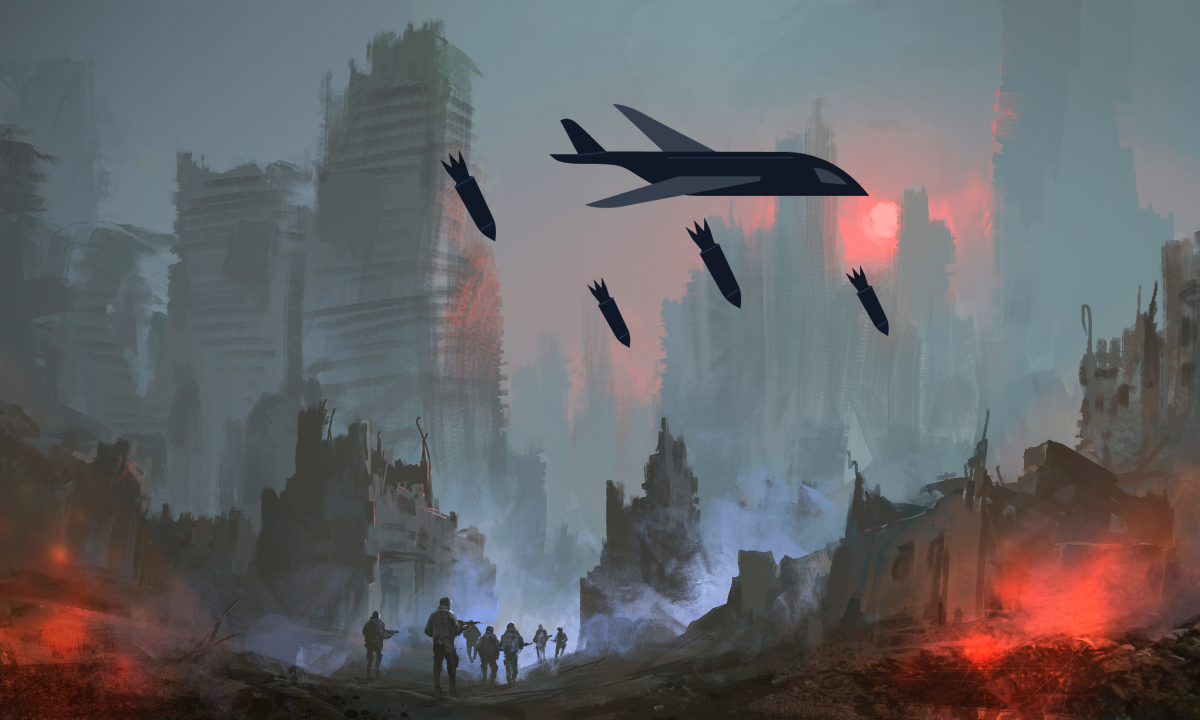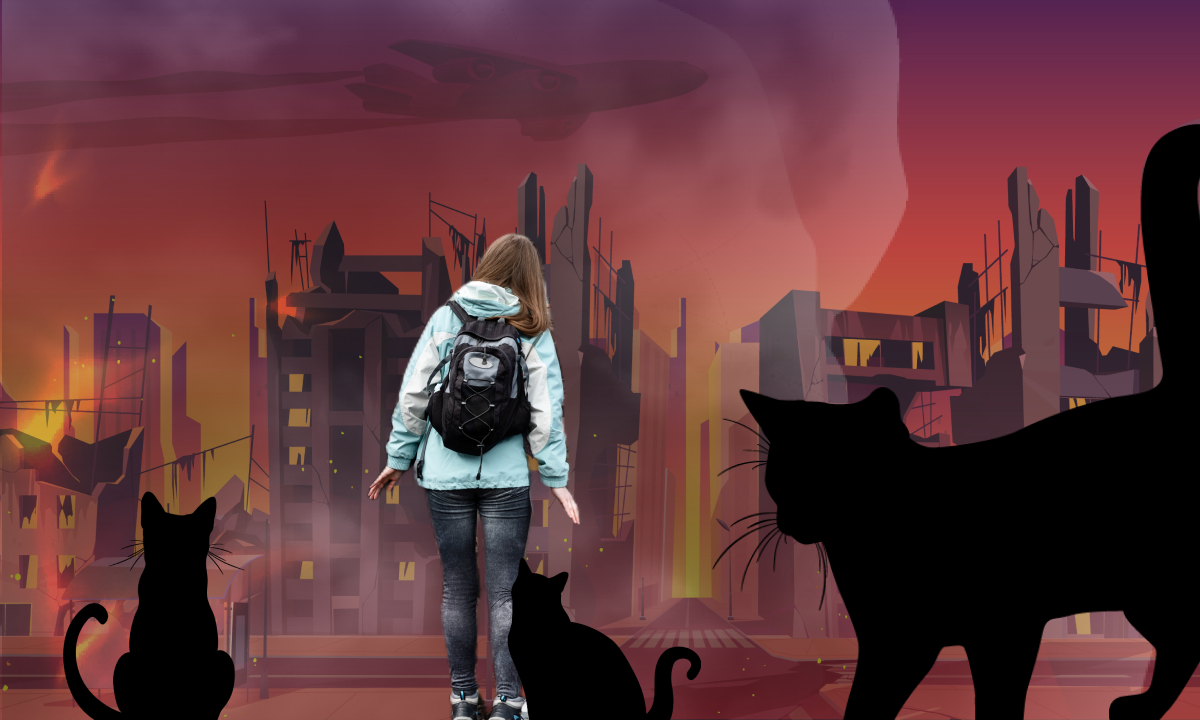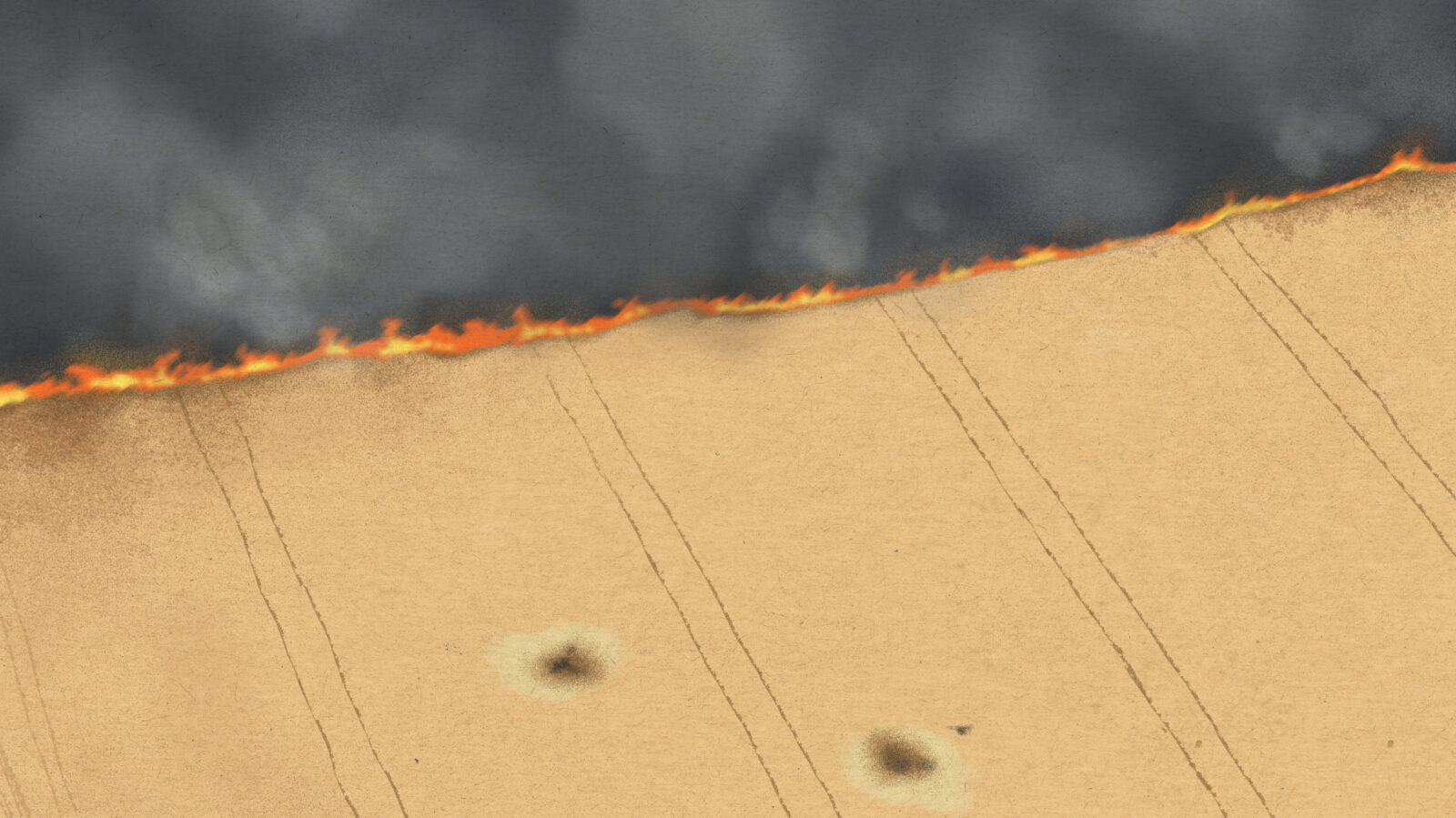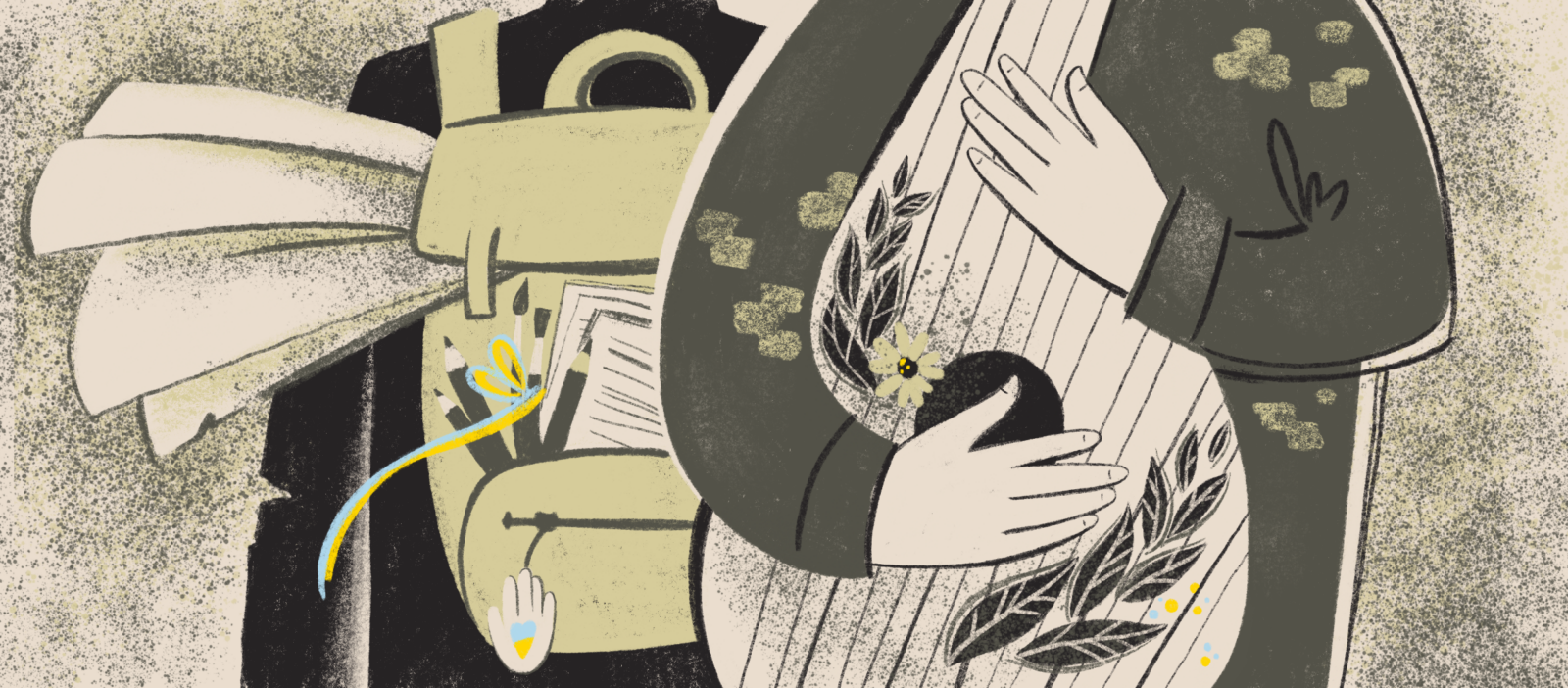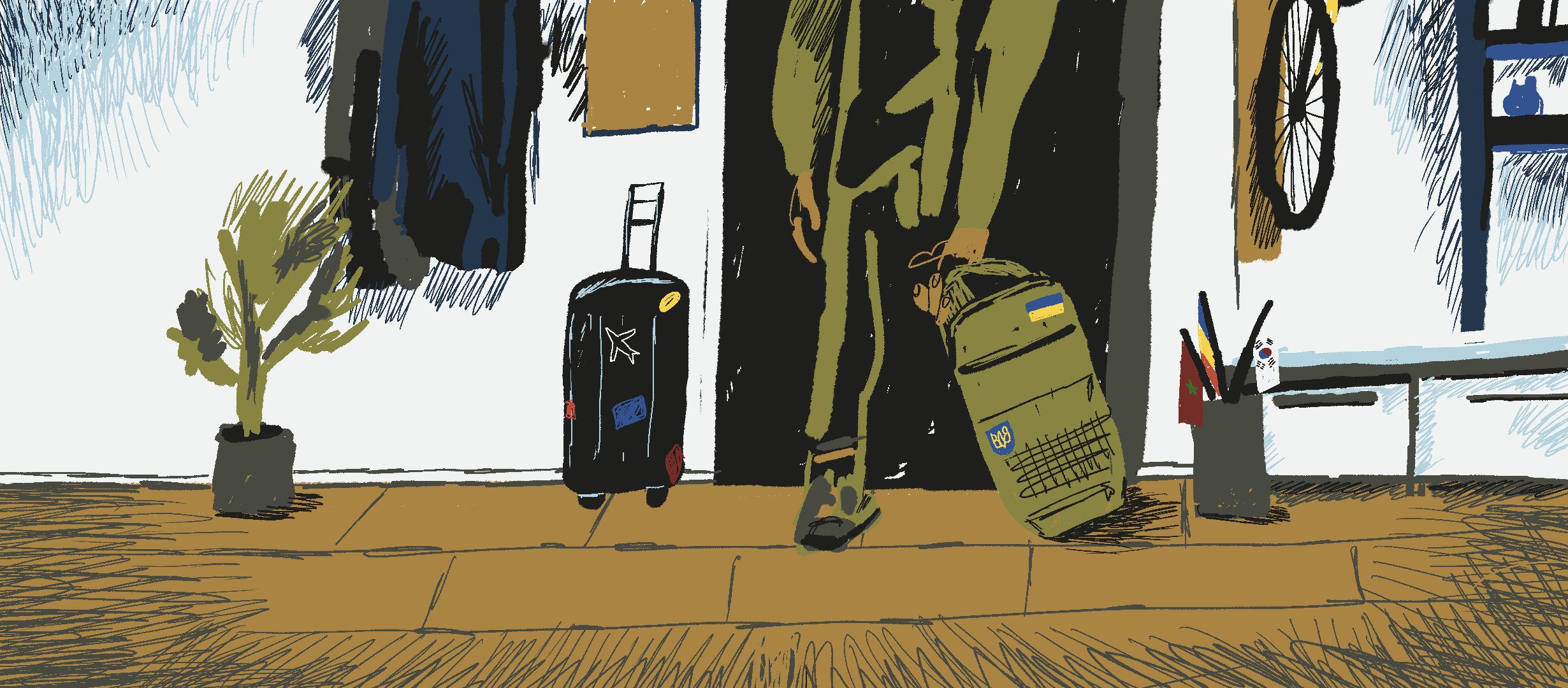Chernihiv is bombed every day. In some locations, there is no hot running water and no electricity. There are fully demolished summer cottage areas. There are people who survived two bombings in a regular cellar of a private house. The invaders are destroying schools, kindergartens and aiming guns at historic buildings. “Yesterday the sirens were sounding without breaks all day, and we hardly ever went outside. Those who remain here keep on going to work, but the city is now half-empty. People are standing in lines for bread and medicine,” said Roman Zakrevskyi, 35, a cameraman for UA: Suspilne Chernihiv (a public TV station).
Roman and his wife Yulia, five-month-old daughter Vasylyna and dog Archie live in the basement of the city hospital. There are also 50 other people and two cats with them.
Roman wakes up around six o’clock: the curfew ends, so he walks Archie near the bomb shelter. If he needs some things, he goes home to get them. The rest of the time he spends with his family.
“My wife is frightened to go outside. We cook and tidy up together. I take out the garbage, replenish potable water supplies and arrange places for newcomers.”
Roman takes plenty of photos of people living in Chernihiv. He shoots footage for a future documentary. “I regularly shudder from explosions when I smoke outside. The thing is, it’s always unexpected. Frankly speaking, I try to survive and not to lose my mind from the thoughts and circumstances that fill the war. Although I constantly remember that someone experiences something harder than I do.”
Roman says his family had several opportunities to leave, but they stayed. “Once we failed to fit the lives of four people into a suitcase to the sounds of Grads [multiple rocket launchers] within 15 minutes and hit the road to Kyiv. We lived through that despair and talked it out. We agreed to stay in Chernihiv. Another time we rejected a friend’s proposal, and then we dealt with the lack of a green corridor, stories from social media about how civilians are being shot, battle scenes and panic among the population. But something keeps me here. I don’t want to leave. I want to experience all these things here, in my native land, and not to hear about the victory somewhere in the Carpathians. However, at the first opportunity I will send my girls to a quiet place. I will stay by myself.”
Roman claims that every next sound can be a bullet or a missile that hits you.
“You’re afraid that a bomb will hit your house or the house of your parents, relatives, friends. You’re afraid to hear that one of your friends has already died. You’re afraid to see blood. You’re afraid to film the consequences of war. You’re afraid to leave the city. You’re afraid to just walk down the street. You’re afraid to do something that will help the enemy win today or take someone else’s life. You’re afraid to think that this will never end. It’s so scary that you no longer notice all those fears.”
His daughter and wife, his routine and his camera, and his belief in victory help Roman to get through this experience. He dreams of surviving, approaching victory every day. “My wife and I talked about a dream: when we come out of our bunker, we will come home, drink the bottle of champagne she has tucked away, put on our most beautiful clothes, and all four of us, nicely dressed, will go for a walk around the city to see what it is like now, to meet friends, hug them, eat out and have something delicious for lunch, and then we will get on the train and go to stay with our friends in the Carpathians for a month.”





